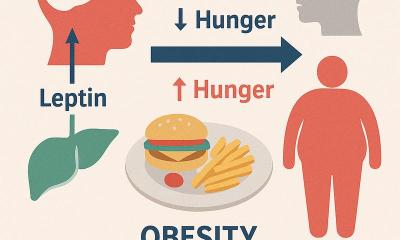Source: Pixabay/stux
News • Unhealthy lifestyle
How working night shifts raises your risk of type 2 diabetes
Women who work intermittent night shifts and do not follow a healthy lifestyle face an especially high risk of type 2 diabetes, suggests a study published by The BMJ.
The researchers found that the risk of type 2 diabetes is actually higher than simply adding the individual risks associated with unhealthy lifestyle and shift work together, indicating that combining an unhealthy lifestyle with irregular night-time working adds a further risk. It is well-established that unhealthy lifestyle behaviours such as smoking, a poor diet and little exercise, and being overweight or obese increase the risk of type 2 diabetes. Shift work, especially night shift work, has also been associated with a greater risk of type 2 diabetes.

However, the researchers believe this to be the first study to look at the combined impact of an unhealthy lifestyle and rotating night shift work on risk of type 2 diabetes. They combined data from two long-term health studies in nurses - the Nurses’ Health Study (NHS) and NHS II – which enrolled female US nurses in 1976 and 1989. They extracted data on 143,410 women without type 2 diabetes, cardiovascular disease, or cancer who had filled out medical, food and lifestyle questionnaires at regular intervals. Nursing care is required around the clock, which means nursing rotas include a mixture of day, evening and night shifts which can be disruptive to personal routines and biological rhythms.
For this study, working rotating night shift work was defined as working at least three night shifts per month in addition to day and evening shifts that month. Unhealthy lifestyle was defined using four factors: being overweight or obese (body mass index of 25 or above), ever having smoked, doing less than 30 minutes per day of moderate to vigorous intensity exercise and having a poor diet (low in fruit, veg, nuts and whole grains, and high in processed meat, trans fats, sugar and salt).
Over 22-24 years of follow-up, 10,915 of the 143,410 nurses reported having a diagnosis of type 2 diabetes. For every five years of working rotating night shifts the nurses were almost a third (31%) more likely to have been diagnosed with type 2 diabetes.
Each unhealthy lifestyle factor - ever being a smoker, being overweight or obese, having a low quality diet or a low level of physical activity - more than doubled (2.3 times) the risk of being diagnosed with type 2 diabetes. Women who exhibited any of these four unhealthy lifestyle factors and also worked rotating night shifts faced an even higher risk of a diagnosis of type 2 diabetes: for each individual unhealthy lifestyle factor they had a 2.83 times higher risk. This risk is higher than simply adding the two individual risks for rotating shifts and for poor lifestyle together, indicating that some kind of interaction of the two risk factors adds further risk.
Recommended article

News • Broken immune clock
Why shift work might be to blame for obesity and diabetes
About 15 million Americans don’t have a typical nine-to-five workday, and many of these—nurses, firefighters and flight attendants, among many other professions—may see their schedule change drastically one week to the next. As a result, these shift workers’ biological clocks, which keep track of the time of day, cannot keep accurate time, potentially making the negative effects of a high…
Most cases of type 2 diabetes could be prevented by adherence to a healthy lifestyle, and the benefits could be larger in rotating night shift workers
The authors calculated that rotating night shift work accounted for approximately 17% of the combined higher risk of type 2 diabetes, unhealthy lifestyle for around 71%, and the remaining 11% was additional risk related to the interaction of the two. “Most cases of type 2 diabetes could be prevented by adherence to a healthy lifestyle, and the benefits could be larger in rotating night shift workers,” they conclude. However, they point out that this is an observational study, so no firm conclusions can be drawn about cause and effect - and all the nurses were female and mostly white, so their findings may not be applicable to men and other racial or ethnic groups.
The additional risk of type 2 diabetes that occurs when rotating night shift workers follow an unhealthy lifestyle may be the result of disrupted sleep and circadian rhythms affecting hormones, other metabolic pathways or the balance of bacteria in the gut, the authors suggest. But they emphasise that further studies are needed to confirm and explain their findings.
Source: The BMJ
22.11.2018











